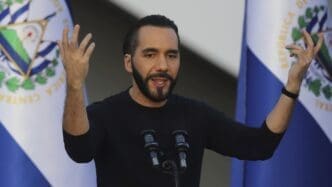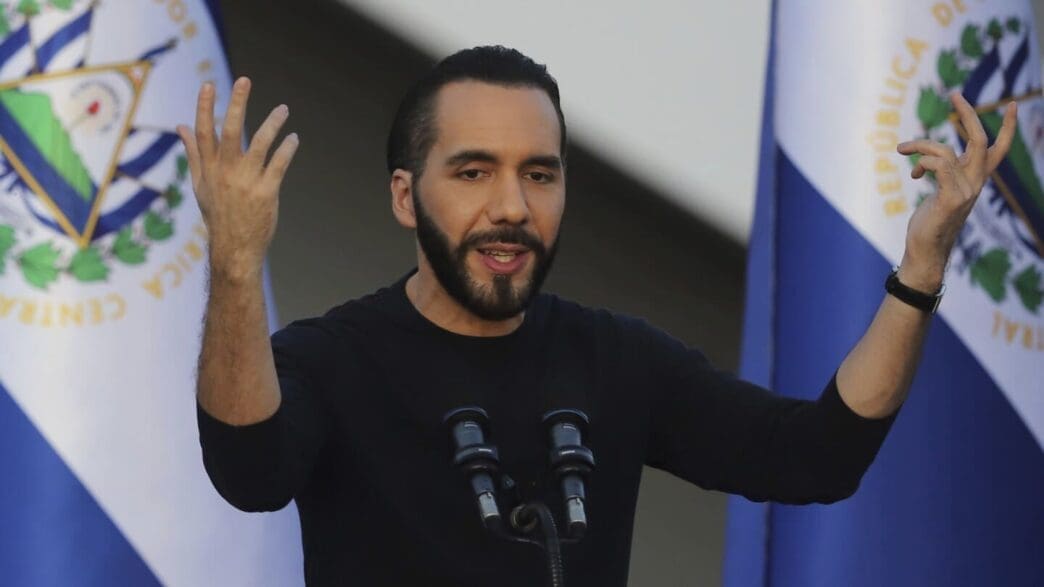The ongoing legal battle surrounding Kilmar Armando Abrego Garcia, a Maryland man mistakenly deported to El Salvador, faced a new complication as Salvadoran President Nayib Bukele announced plans to keep him detained in a notorious mega-prison. This development marks a significant shift in the case, which has become entangled in the Trump administration’s aggressive immigration policies aimed at expanding presidential power over deportations.
During a meeting in the Oval Office with President Donald Trump, Bukele expressed his reluctance to release Abrego Garcia, citing his administration’s policy against freeing individuals they classify as terrorists. U.S. officials have accused Abrego Garcia of being involved with the MS-13 gang, a group labeled as a foreign terrorist organization by the current administration. This claim, however, is contested by Abrego Garcia’s legal team and has been met with skepticism by at least one federal judge.
Abrego Garcia, originally from El Salvador, entered the United States illegally around 2011. In 2019, an immigration judge ruled against his deportation to El Salvador, given the threats he faced from a gang targeting his family’s pupusa business. Nevertheless, U.S. authorities arrested him on March 12 and deported him to El Salvador, alleging his association with other gang members, a claim supported by what they describe as a reliable source.
Identified by his wife in a photo of detainees at El Salvador’s CECOT prison, Abrego Garcia and his family subsequently filed a lawsuit against several Trump administration officials, demanding his return to the U.S. District Judge Paula Xinis deemed his deportation illegal, ordering his return by March 31. However, the Supreme Court delayed this deadline, calling for further clarification on Xinis’ order.
The Supreme Court emphasized the need to respect the Executive Branch’s authority in foreign affairs, though it upheld the directive to facilitate Abrego Garcia’s release. Judge Xinis later reiterated her order, requiring the government to demonstrate the steps being taken to secure his return. Despite these directives, the Department of Justice argued that facilitating his return involves removing domestic obstacles, rather than engaging with El Salvador directly.
Justice Department officials stated Abrego Garcia is no longer eligible for withholding of removal due to allegations of gang membership. The case is scheduled for another hearing, as President Trump has adjusted his position, emphasizing the decision rests with El Salvador. Attorney General Pam Bondi and other administration officials maintain that the U.S. can only provide transportation if El Salvador consents to his return.
President Bukele has firmly stated his stance against releasing detainees believed to be criminals, reinforcing his commitment to maintaining security in El Salvador. The case continues to unfold amid ongoing debates over immigration policy and international relations.
The Societal Shift
The case of Kilmar Armando Abrego Garcia underscores the complexities and human impact of immigration policies, particularly those focused on deportation. The legal proceedings not only highlight the challenges faced by individuals caught in the immigration enforcement system but also illustrate the broader implications for international relations and cross-border cooperation.
This situation may prompt communities and policymakers to re-evaluate the balance between national security concerns and humanitarian considerations. It raises significant questions about the processes used to determine deportations and the potential consequences for families and communities affected by such actions. The case serves as a reminder of the need for transparency and fairness in immigration proceedings, ensuring that individuals are not wrongfully penalized due to administrative errors or unfounded allegations.
As the case progresses, it may also influence public opinion on the effectiveness and ethics of current immigration policies. The heightened scrutiny could lead to calls for more comprehensive reform, aiming to create a system that better aligns with both security objectives and human rights principles.








